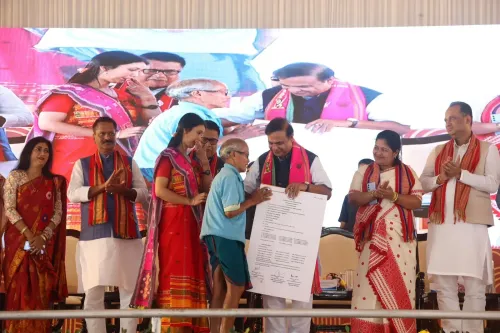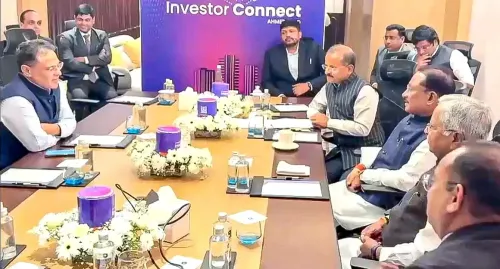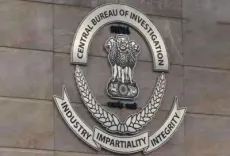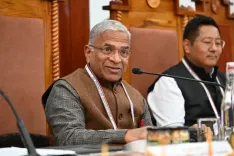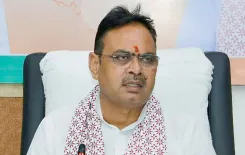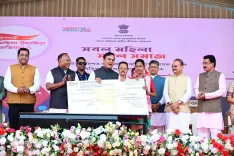FairPoint: Should MPs Be Held Accountable for Parliamentary Disruptions?
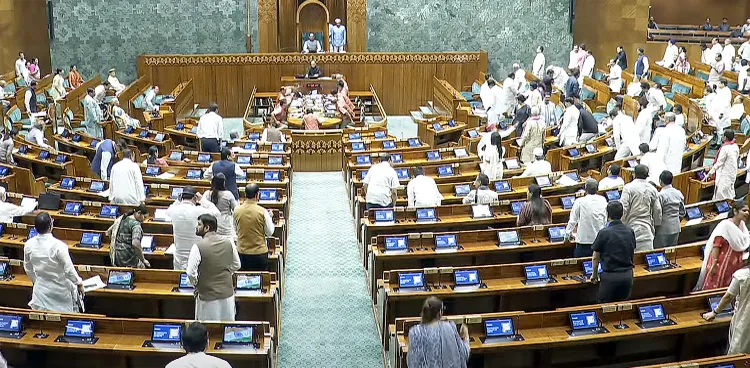
Synopsis
Key Takeaways
- Accountability is essential for MPs.
- Disruptions hinder legislative progress.
- Public trust is eroded by chaos.
- Decorum must be upheld in Parliament.
- Report cards can enhance accountability.
New Delhi, July 27 (NationPress) It is vital for the Opposition to express dissent and ensure government accountability, while it is equally imperative for Parliament to operate seamlessly to meet its well-defined, constitutionally mandated duties. This embodies the essence of a true democratic practice.
However, when dissent transforms into disorder, disrupts Parliamentary proceedings, and seeks to undermine established conventions, it becomes unacceptable.
The inaugural week of the 2025 Monsoon Session was rendered ineffective due to the Opposition's incessant, loud protests on multiple issues. While protesting is a right, the manner in which the Opposition has been obstructing progress is troubling.
Only a handful of productive activities occurred, such as Lok Sabha Speaker Om Birla's remarks on the Kargil Vijay Diwas anniversary and Rajya Sabha Deputy Chairman Harivansh administering the oath to actor and MKM leader Kamal Haasan along with three DMK members.
It appears that the Opposition's protests are fueled more by ego than by a sincere intention to resolve the issues they claim to champion. Their primary concern has been the Special Intensive Revision (SIR) of electoral rolls in Bihar, an initiative launched by the Election Commission of India (ECI) in preparation for the upcoming state Assembly elections.
The Opposition demands a dialogue, alleging that this move is a tactic to diminish voter numbers and bolster the BJP. Despite the ECI's clarifications on the matter, the Opposition remains unwilling to listen. Their MPs have been storming the well of the Houses, brandishing placards and banners, preventing other MPs from addressing key issues.
For instance, on Friday (July 25), while YSRCP's Ayodhya Rami was speaking in the Rajya Sabha, two Trinamool Congress MPs, including Sagarika Ghose, disrupted his address. The two women MPs were visibly attempting to drown out Reddy's speech, even as he continued with apparent amusement. While the Trinamool MPs seemed excited by this act, it inadvertently exposed their behavior.
The commotion from the opposition MPs was so loud that nothing else was audible. Bhubaneswar Kalita, who was presiding, struggled to reason with the protesting members before ultimately adjourning the session.
In the Lok Sabha, throughout the working week, Speaker Om Birla attempted to calm the unruly, unyielding Opposition members, but to no avail. He was repeatedly seen growing visibly frustrated with the display of placards in the House. He consistently pointed out that shouting slogans and displaying placards undermines the dignity of the House.
Placards are prohibited within the Parliament House Complex, encompassing both the Lok Sabha and Rajya Sabha. This has been emphasized through advisories issued to MPs.
Witnessing his requests and warnings ignored, Speaker Birla admonished the protesting Congress-led Opposition. He directed his comments at senior Congress MP K.C. Venugopal, questioning, "Is this how you instruct them to disrupt the House?"
Expressing concern over the implications of such behavior for new parliamentarians, he remarked, "Is this the lesson you're imparting to the next generation—sloganeering, placard-waving, desk-thumping? These were not the values your party once represented. The nation is observing how the new MPs are being molded."
Indeed, the nation is watching. Disruptions have become commonplace in nearly every session. Yet, MPs appear undeterred by their actions—especially now, when everything is documented, shared, and assessed in real-time due to widespread internet access.
A week devoid of productivity—can any organization tolerate this? The answer is an emphatic no. In today's results-oriented climate, why should MPs be permitted to squander an entire week in turmoil?
These ongoing disruptions mean that MPs are not engaging with Ministers during Question Hour, a crucial tool for ensuring government accountability. They also encroach on valuable business hours, leaving insufficient time for legislative debate. Consequently, important bills either pass without discussion or remain stalled. This is detrimental to democracy and unfair to the electorate.
This certainly is not conducive to democracy. The nation is observing, and the examples they set are far from encouraging.
Similar disturbances during the recently concluded Monsoon Session of the Bihar Assembly, the last for this Nitish government, have also drawn ridicule.
The perception that MPs and MLAs prioritize political theatrics over resolving real issues continues to strengthen. It is high time that accountability for work performed is instituted for MPs and MLAs.
They, too, should receive report cards for each session, covering both attendance and accomplishments. Just as the working class is expected to uphold decorum, meet targets, and demonstrate results, why should MPs and MLAs be exempt?
(Deepika Bhan can be contacted at deepika.b@ians.in)

